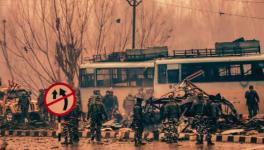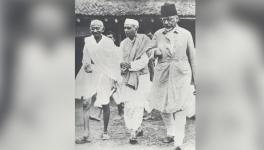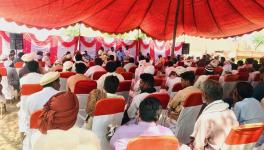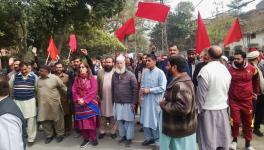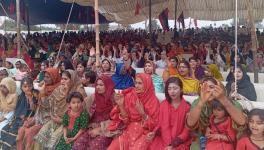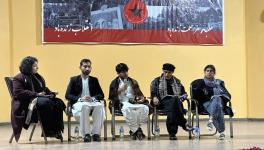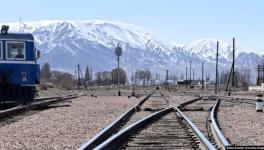Pakistan: More Arrests as State Crackdown on Pashtun Movement Continues
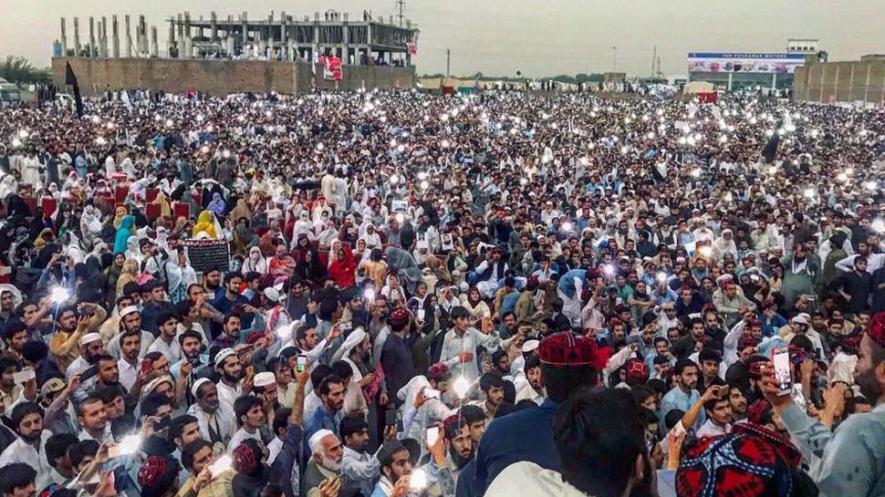
Nine members of the Progressive Youth Alliance (PYA) and Red Workers Front were allegedly abducted by the Rangers (a paramilitary unit) this week in Pakistan, for expressing their support to the Pashtun Tahafuz (Protection) Movement (PTM). The nation-wide movement against state repression and militarization of tribal areas continues to grow despite efforts by the administration to suppress it. The arrest of the communists is the latest in a series of such incidents. Reports suggest that six of the activists have been released by the authorities on April 26.
Today, a protest demonstration was organised against the arrest of students and trade union members for their support to PTM in Lahore. According to Pakistan Trade Union Solidarity campaign, more than 30 protesters were detained by the Punjab Police.
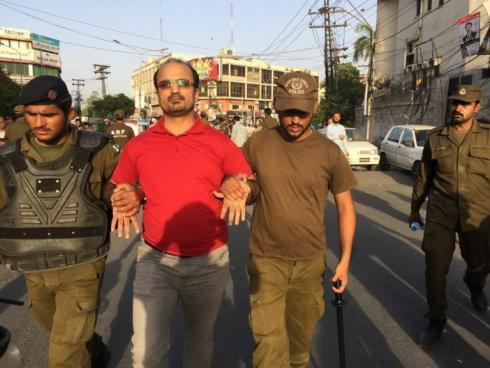
The nine activists were part of Lal Salaam (International Marxist Tendency-IMT) Pakistan. And out of the nine, seven were arrested on April 22 for expressing their solidarity at the PTM protest meeting held in front of the Karachi Press Club on April 22. The protest was organized by the leadership of the PTM as they were being denied the right to hold a peaceful public meeting in Lahore. Expressing their solidarity with the Pashtuns, the communists called for an immediate end to the atrocities against Pashtuns in the tribal areas and across the country.
The authorities had earlier refused permission for the protest. They also arrested a number of PTM leaders the night before and filled the Mochi Gate venue with sewage water. Nonetheless, the protesters defied the prohibitory orders and gathered in thousands to stage a gathering.
The Pashtun movement began way back in 2014, demanding the removal of landmines from the areas in South Waziristan that had been witnessing an anti-insurgency operation by the Pakistani army. According to PTM members, around 34 children and women were killed since 2009 in the landmine blasts.
Following the abduction and ‘encounter’ killing of Naqeebullah Mehsud on January 13 in the suburbs of Karachi, the PTM acquired massive proportions, The police claimed that Mehsud was an active terrorist and had links with the Islamic State. Subsequent investigations, including one ordered by the Supreme Court, found that Mehsud was innocent.
On January 26, thousands marched to Lahore via Peshawar, protesting the extrajudicial killing of Mehsud and others by the police and army. At Lahore, they organised a Pashtun jirga on February 1. The jirga demanded an end to the racial profiling of Pashtuns in Pakistan and sought the production of ‘missing persons’ before the courts. The protesters also demanded that the army should end the use of violence or collective punishment against entire villages and tribes, and guarantee that it would not abduct or open fire at innocents in the tribal areas. The sit-in ended on February 10.
On April 8, the PTM organised another long march at Peshawar, reiterating its earlier demands. Although over 150,000 people took part in the march, the country’s media completely blacked out the protests.
This was the context in which the protest on April 22 took place. At the event, which was attended by students, trade unionists and human rights activists from across Pakistan, the leadership of the PTM recalled the incidents in the tribal areas over the last decade. They pointed out how innocent people were killed in the name of Army operations, while the Taliban and other Islamic fundamentalists were fully backed and supported by the State.
According to PTM leader Manzoor Pashteen, over 32,000 members of the Pashtun community have been reported as ‘missing persons’. They are believed to have been abducted by either the army or the intelligence services.
Enforced disappearances have become a major human rights and political issue in Pakistan. According to statistics from the Commission of Inquiry on Enforced Disappearances, there are 1,498 cases of enforced disappearances pending before it as of November 2017. Many of the ‘missing persons’ have allegedly been picked up by the country’s notorious intelligence services and tortured.
In October last year, Supreme Court Justice Ejaz Afzal Khan, demanding a detailed report on enforced disappearance cases, said, “The highest judicial office of the country has no answer to give to the loved ones of the missing persons who have been doing the rounds of the courts.”
Pakistan, in its Universal Periodic Review at the UN, claimed that the commission on enforced disappearances examined 2,416 disappearances that occurred between March 2011 and November 2016.
Pashtuns contribute to around 15 percent of Pakistan’s population, with a majority of the 30 million-strong community living in the country’s northwest.
Get the latest reports & analysis with people's perspective on Protests, movements & deep analytical videos, discussions of the current affairs in your Telegram app. Subscribe to NewsClick's Telegram channel & get Real-Time updates on stories, as they get published on our website.










